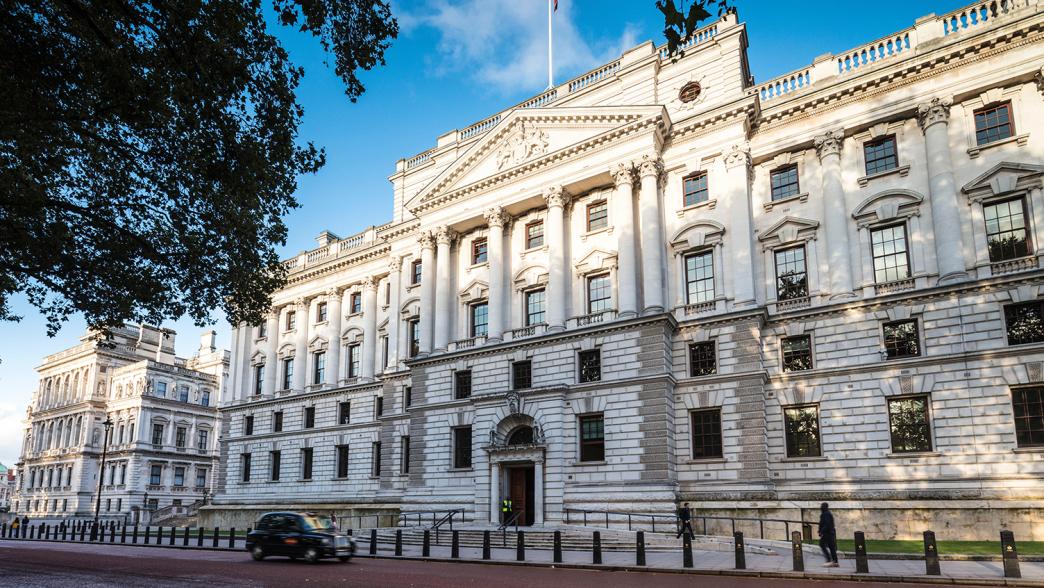'Orthodoxy' is not the issue: the Treasury’s outsized power creates problems for government
Excessive power, rather than ‘orthodox’ thinking, is the main problem with the Treasury.

Future governments would benefit if brave politicians chose to balance, soften, or disperse the power of the Treasury, write Giles Wilkes and Olly Bartrum
Our project to examine the Treasury orthodoxy began when Liz Truss was running for the leadership of the Conservative party. Criticism of the Treasury was a persistent theme of her campaign. The project was still beginning when her premiership came crashing down, in circumstances that could not have been better designed to vindicate the Treasury’s apparent conservatism. Even a year later, the surprisingly numerous defenders of Trussite economics were continuing to snipe at the government’s finance ministry for the failure of her programme.
But complaints about the Treasury did not begin and end with one short premiership, which is why we spent much of the past year interviewing former and current officials, advisers and academics to establish what is understood by the term Treasury orthodoxy, 4 Other terms such as ‘Treasury brain’ or the ‘Treasury view’ are often used interchangeably with ‘Treasury orthodoxy’. what it can fairly be blamed for, and the contrary: why a modern country needs a finance ministry with its particular biases and behaviours. A key finding confirms what the government learned the hard way in the autumn of 2022: much of the resentment aimed at the Treasury is misplaced and is in fact a resentment of the realities that it represents.
Many criticisms of the Treasury are crude and misplaced
Indeed, the blame aimed at the Treasury often misses the target. No, Coalition-era austerity was not its idea, foisted on the government. The timing and depth of post-financial crisis spending cuts were entirely a choice of the politicians. Nor does it insist on fiscal conservativism no matter what the circumstances; its fleetness of foot and deep pockets during first the financial crisis and later the covid pandemic are clear evidence to the contrary. The price of these interventions and others is the steady rise in the government’s debt burden over the past 15 years. It is no criticism that other departments grumble at the Treasury’s stinginess – the absence of such grumbling would be even more alarming. Yes, it may have a particular, somewhat obsessive focus on debt reduction and “sound money” – maintaining a stable value for the pound – but there is no denying that the cost of failure here is heavy, something Britain has over a century’s painful experience in. It is difficult to find a finance ministry anywhere else that does not share the same instincts.
Other criticisms are much more justified but should be aimed instead at the people in charge – for it is clearly the most political of departments, highly alert to what its ministers want. Amidst the chaos of autumn 2022, it is often overlooked how the Treasury did in fact begin to push through the elements of Truss’s “growth plan”. It may be partially responsible for a short-term bias in UK policymaking, but the responsibility lies mostly with the fiscal framework and how its twice-yearly budgets (real or de facto) dominate the Whitehall calendar. That this is operated by the Treasury but exists in the form it does is a matter of political choice. Many officials would love to change it.
Treasury ‘orthodoxy’: What is it? And is it a problem for government?
The Treasury wields too much influence across government and dominates strategic thinking at the centre.
Read the report
There are clear problems with the way Treasury (ministers) approach policy making
Nevertheless, during many hours of interviews, the picture that emerged was far from flattering to the occupants of One Horseguards Road and suggested multiple areas of concern – and potential opportunities for improvement. Alongside that short-term focus on the budget has developed a brew of other related tendencies that detract from good policymaking. Critics see the Treasury’s approach to evaluating spending proposals as too simplistic and static, which generates a deadening scepticism towards novel ideas or the possibility of dynamic change. This isn’t hard-coded into the operating system in the Green Book and various other pieces of Treasury guidance – these allow for considerable nuance and ambition, rather than a dry stacking-up of economic cases. But somehow departments and Treasury together expect nothing better – a self-fulfilling equilibrium of low expectations that it would take strong political direction, determination and time to fix.
There are other issues that may be termed cultural, including the youthful arrogance Treasury officials are frequently accused of by outsiders (a potential side-effect of its positive internal culture of challenge), as well as insularity and excessive secrecy around its own deliberations. This last accusation rankles particularly with departments expected to subject their workings to minute Treasury scrutiny, while seldom enjoying a reciprocal right over Treasury deliberations over tax initiatives relevant to their own policy area.
The Treasury’s outsize power amplifies it faults into significant problems for government
None of these criticisms would carry the weight they have were it not for the issue underlying all the others: the power of the Treasury, which exceeds that of any other part of government apart from 10 Downing Street. Its veto power is pervasive, and its ability to initiate and force through policies unique. Of course, it would be dangerous to want a weak finance ministry easily cowed either by the prime minister or big spending departments. But the absence of firepower elsewhere to match the Treasury’s sway distorts how policy is made. Insofar as the government operates a strategy worthy of the name, it is often determined too much by the outcomes of Treasury-led spending processes, rather than a comprehensive strategy determining those outcomes.
Unbalanced power is a problem in a system like the UK’s, supposedly regulated by balances of interests. However, ultimately it is political power, originating in the status of the Chancellor of the Exchequer, and could be balanced, softened, or dispersed if politicians make the choices necessary to do this. It would take just a little political courage for the next chancellor to bring to an end the exhausting practice of two de facto annual budgets, for example (political advisers should kill the illusion that they provide an opportunity to win some popularity, for which there is little recent evidence).Economic capacity elsewhere in government could be strengthened, as part of a revamp of the Centre: something on which the final report of the Institute for Government’s Commission on the Centre of Government will have more to say next month. Spending reviews need to be reformed, from the series of bilateral poker-games they currently resemble into something more collaborative and strategic, with the prime minister closer to the action.
Some influential voices believe the Treasury is beyond reform and needs to be broken up. We do not currently have the evidence sufficient to justify anything so drastic. It might just leave the underlying problems unchanged but in a different form. The Treasury is a tool of government – a powerful one, rightly proud of its almost thousand-year history, and in many ways the most impressive and consequential tool at the government’s disposal. But to repeat the well-known cliché, it is a bad worker that blames his tools. Different political choices are available. They could improve the Treasury in its current form, and with it the whole of government.
- Topic
- Public finances Policy making
- Political party
- Conservative Labour
- Administration
- Sunak government Truss government
- Department
- HM Treasury Number 10 Cabinet Office
- Public figures
- Rishi Sunak Jeremy Hunt Gordon Brown Liz Truss Kwasi Kwarteng
- Publisher
- Institute for Government